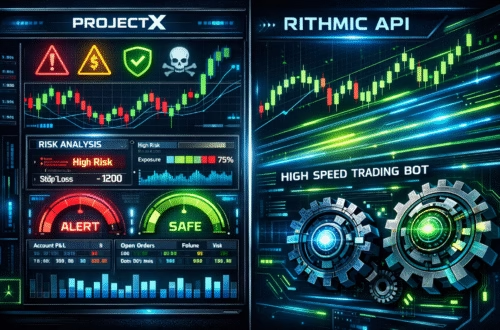The total market value of the seven largest U.S. technology companies has shrunk significantly, raising concerns about a broader market downturn.
Apple’s stock price plunged from $259.8 to below $215, Microsoft dropped from $465.9 to under $380, Nvidia fell sharply from $153 to $110, and Tesla declined from $488 to below $220. In total, the market capitalization of these seven tech giants has dropped by over 10 trillion yuan in a short period.
Market Rankings Remain Stable Despite Heavy Losses
Despite the sharp decline, the global rankings of these companies remain stable. Apple, Microsoft, and Nvidia still have a combined market cap of 64 trillion yuan, securing their influential position in the U.S. stock market. However, with the tech sector carrying significant market weight, any volatility in these companies directly impacts the overall market direction.
Nasdaq Nears Bear Market Territory
The Nasdaq index has seen a cumulative decline of nearly 15%, nearing the threshold of a bear market. If the U.S. stock market officially enters a bear phase, it could have profound consequences for America’s global financial influence.
Wall Street’s Capital Game?
This sharp sell-off does not appear to be a simple technical correction. Some analysts suggest it is part of a larger capital game within Wall Street.
Five years ago, during Trump’s first term, the U.S. stock market experienced a similar deep correction, with the Nasdaq dropping as much as 40%. Now, during his second term, market challenges have intensified. Notably, Tesla—led by Trump’s ally, Elon Musk—has faced aggressive sell-offs, with its stock plummeting by 55%. The ongoing battle between Musk and Wall Street elites remains unpredictable.
From Tesla to Nvidia, and even Google and Amazon, the widespread declines suggest Wall Street may be exerting pressure on Trump through the stock market. Some speculate that the downturn is an intentional strategy to force the Federal Reserve to cut interest rates. However, the Fed remains independent, and Trump’s influence over monetary policy is limited.
The Shift Towards Chinese Markets?
As U.S. tech stocks falter, global investors are reconsidering their options. Some analysts believe that the U.S. market turmoil could accelerate the shift of capital toward Chinese assets.
Since the start of the year, the Hang Seng Technology Index and other Chinese asset benchmarks have surged, attracting renewed global interest. With the rise of China’s DeepSeek and the growing strength of Chinese tech firms, global funds are paying closer attention to investment opportunities in China. Hangzhou, often called “China’s Silicon Valley,” is home to emerging tech giants, further reinforcing this trend.
Time Running Out for Wall Street?
If the U.S. market slips into a full-fledged bear market, it could weaken the country’s financial influence, forcing investors to seek safer alternatives. China’s core assets may emerge as the main beneficiaries of this capital rotation.
With uncertainty looming over Wall Street, global markets remain on edge, waiting to see whether the U.S. can stabilize its tech sector—or if the shift toward Eastern markets will accelerate.





